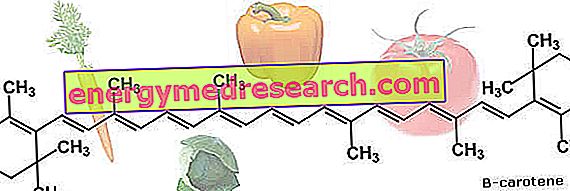Definition of pregnancy leukorrhea
The term leucorrhoea expresses a physiological condition characterized by the vaginal discharge of whitish leaks: the phenomenon occurs in women of all ages, but when it occurs during the expected wait it is called leukorrhea gravidarum.
Vaginal discharge
Sometimes, the intensity of the pregnancy leukorrhea is such as to create considerable discomfort and discomfort to the woman: vaginal secretions are more dense, with a color ranging from intense white to transparent.

The leucorrhoea, like the leucorrhoea in general, originates from the cervix; the whitish losses can be irregular and increase or decrease based on some factors: mucosal congestion, vaginitis and local inflammation can stimulate secretions.
Near the birth, the pregnant leucorrhoea undergoes a transformation, since the consistency of the losses changes: when the secretions tend to become more abundant, but less viscous and more liquid, there is the possibility that the breaking of the waters is in progress.
Related disorders and prevention
The pregnancy leukorrhea is not synonymous with disease, on the contrary, it is essential that the internal mucosa of the vagina is well lubricated: the secretion, in addition to softening the walls of the genital organs, is necessary to facilitate the vaginal cleansing.
Therefore, the leucorrhoea pregnancy does not have to be interpreted as a problem, since it represents an absolutely normal condition; however, if the secretions were accompanied by itching, burning and discomfort, it would be advisable to seek medical attention: a bacterial or fungal infection could be in progress. For example, Candida albicans infections cause itching, irritation, redness and pain during intercourse, in addition to the characteristic white losses: the secretions caused by Candida, however, can hardly be confused with a normal leukorrhea, since they assume a typical texture correlated with ricotta.
However, in the case of abnormal pregnancy leukorrhea it is necessary to contact the gynecologist to identify the triggering factors: during maternity, the woman tends to be more fragile, therefore bacteria, fungi and protozoa could attack the mucous membrane vaginal finding the ideal habitat to reproduce. In this regard, in order not to aggravate the pre-existing pregnancy leukorrhea, the prevention of various infections is indispensable: intimate hygiene must be carried out with delicate, slightly aggressive products and, to avoid removing the natural protective mucous layer of the vagina, it must not be excessive.
Natural remedies
Natural remedies to prevent infections associated with pregnancy leukorrhea can be purchased in herbal medicine and in pharmacies; the expert can recommend formulations preferably with acid pH, hypoallergenic and oily:
- Tea tree oil ( Melaleuca alternifolia ): natural remedy for fungal and bacterial infections. It must not be used pure because it is an irritant; if diluted it is well tolerated by the mucosa and acts by exerting a mild anti-inflammatory activity. In this way, Melaleuca oil keeps the leucorrhoea and the bacterial infections associated with it under control;
- Calendula ( Calendula officinalis L.): in addition to cleaning the skin, the calendula is soothing, anti-inflammatory, and is useful in the leukorrhea gravidarum accompanied by infections of staphylococci;
- Hyaluronic acid: important to avoid abundant secretions of leukorrhea, to hydrate and protect vaginal tissues;
- Bergamot ( Citrus bergama): the essential oil is also useful in the prevention of infections related to leukorrhea gravidarum, because antiseptic (disinfectant properties).
Vaginal lavages are not recommended in case of pregnancy leukorrhea, as they could cause an impoverishment of the bacterial flora and strengthen the pre-existing leucorrhoea. It should be noted that internal vaginal lavages should always be avoided during gestation, regardless of the presence or absence of leukorrhea pregnant.



